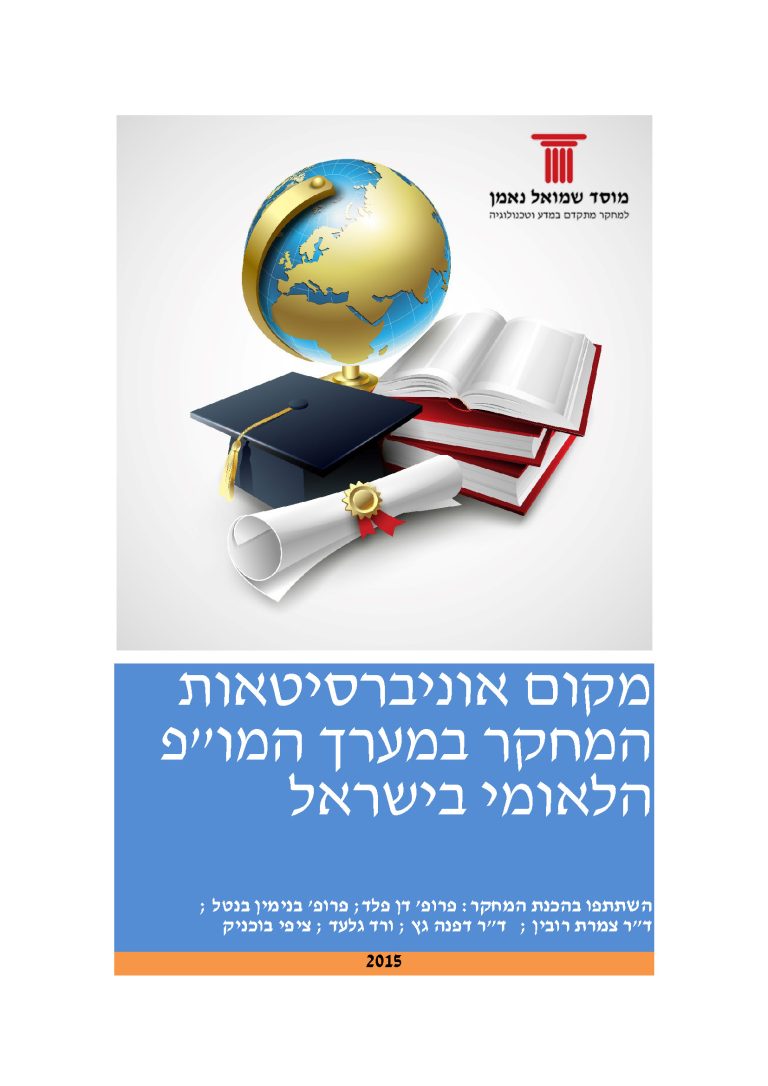This work provides an overview and analysis of the contributions of the Israeli research universities to the nation’s R&D system within an international comparative context.
The report begins with a review of the structure and governance of the R&D systems in a number of countries, (Chapter 2). Chapter 3 reviews the evolution of universities in Israel and other countries.
Mutual relationships and collaboration between academia and industry are reviewed in Chapter 4, focusing on specific experience in Israel. Chapter 5 describes the mechanisms created in Israel and elsewhere for encouraging collaborative academy-industry R&D efforts.
The chapter also describes the wealth of government support programs for civilian R&D in Israel. In chapter 6 we analyze impact of university degree programs on the labor force in Israel and the academic staff requirements of the universities. Chapter 7 analyzes academic research output as reflected in the quantity and quality of publications in scientific journals.
Chapter 8 analyzes the relationship between the universities and industry patent outputs in Israel compared to such relationships elsewhere.
Chapter 9 summarizes the recommendations derived in previous chapters, while emphasizing the importance of three global developments in academic R&D:
- the development of on-line education and its possible impact on academic staff at the universities;
- increased interdisciplinary research that may induce revisions in traditional disciplinary-based university structures and in the way individual faculty members are evaluated;
- the growing availability of data that allows better planning of academic degree programs with better catering to industry needs .












